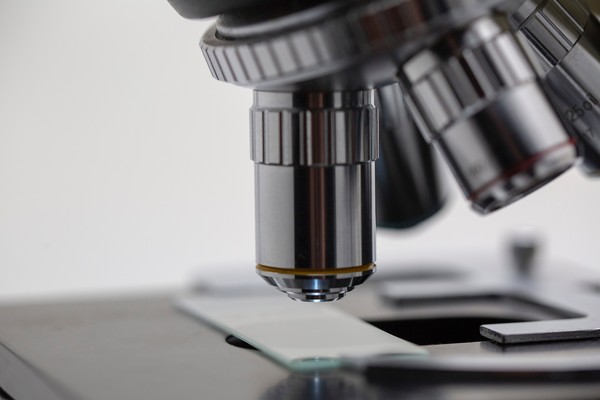It will not be Homo sapiens alone that will determine what their future will be like. Artificial intelligence will have a fair share of influence on shaping the future for Homo sapiens as well.
That is the belief held by the Electronics and Telecommunications Research Institute (ETRI), which says artificial intelligence will have the greatest impact on all industries that the world has ever witnessed in the history of industrial revolutions.
The future of Homo sapiens may not be of an immediate concern to the semiconductor industry. But it believes artificial intelligence will have an immediate impact of great magnitude on its business, as shown by Accenture’s 2019 report on a semiconductor outlook in the world.

Two-thirds of semiconductor executives surveyed by Accenture for the report said artificial intelligence would have the greatest impact on their business over the next three years.
No wonder Korea is ready to sink huge amounts of money into projects focused on developing AI-related core technologies and retain them as its intellectual properties in the years to come. It does not want to be left behind in a cutthroat competition in research and development on artificial intelligence.
The Korean government is planning to spend hundreds of billions of won designing computer chips and algorisms for parallel computing, both needed for the use of artificial intelligence on a variety of futuristic devices, ranging from connected self-driving cars to humanoids caring for the elderly.
Yet, the focus will undoubtedly be placed on research and development on new breeds of semiconductors for parallel computing rather than on algorithms, with the Korean semiconductor industry leading the pack with its highly advanced nanometer chip-making processes.
The Ministry of Trade, Industry and Energy and the Ministry of Science and ICT have jointly started to take proposals to develop technologies for next-generation “intelligence-capable semiconductors,” which ETRI defines as those capable of cognition, inference, learning and decision-making.
The proposed research and development on the next-generation computer chips is part of a package of joint projects to produce materials, design architectures and develop manufacturing processes suitable for semiconductors combining software functions and system-on-chip architectures.
The Ministry of Science and ICT is responsible for funding research and development on AI processors such as neural processing units (NPUs), ultra-fast interfaces, AI algorithms and ultra-low-power semiconductor devices. Its aim is to develop new technologies in those areas, retain them as intellectual properties and thus get ahead of others in the global race to develop artificial intelligence technologies.
Minister of Science and ICT Choi Ki-young says, “The development of AI computer chips are at the center of a global race for dominance in the area of artificial intelligence, and,with the chips in the initial stage of development, we will be able to lead the global market once we successfully develop relevant technologies.”
On the other hand, the Ministry of Trade, Industry and Energy is set to fund the project to design system-on-chip architectures that can be used in a variety of smart applications for mobility, home appliances, medicine, energy and robots.
The system-on-chip architectures are envisioned, among others, to enhance the safety of autonomous vehicles, enable displays to improve image quality automatically or support extended-reality functions.
The ministry also plans to help assist in securing technologies required for below-10-nanometer chip-making and 3D chip-packaging processes. These technologies, the ministry says, are required to manufacture semiconductors to be used for AI-powered devices.
In addition, it plans to assist research and development on light-weight processors, storage devices, sensors, connectivity, security and control.
The government is planning to invest as much as 1 trillion won on those inter-ministry project during the next 10 years.
Minister of Trade, Industry and Energy Sung Yun-mo says, “We will assist in securing core technologies for the next generation of semiconductors so that we will have our chip-making prowess, now limited to memory, in non-memory sectors as well.”
Korean chip makers have already started to develop such technologies and are in a competition with Intel, Qualcomm and other global players that are producing next-generation semiconductors with arcane names, including NPUs and fieldprogrammable gate arrays (FPGAs) as well graphic processing units (GPUs).
Both Samsung Electronics and SK hynix are pouring huge amounts of money into computer chips processing information in the way human brains do.
For what it called “on-device artificial intelligence,” Samsung Electronics said in July of last year that it was spurring its research institutes to develop NPUs that were optimized for deep-learning algorithms.
It said it was investing heavily in the development of NPUs and other system semiconductors, aiming at positioning itself in the No. 1 slot by 2030 when it came the manufacture of system semiconductors. In this regard, it said the number of personnel working on NPUs will increase 10-fold to 2,000 by 2030.
SK hynix is making similar efforts, albeit in a smaller scale. It put computer chips supporting artificial intelligence, virtual-reality, augmented-reality, automotive functions on display at CES 2020 in Las Vegas earlier this month.
But the ultimate goal of Samsung Electronics, SK hynix and other chip makers is to develop neuromorphic chips. SK hynix says, “By imitating the human brain’s structure, neuromorphic chips can recognize more diverse information such as atypical text, images, sounds and videos, as patterns.”
Samsung Electronics and SK hynix, as well as the Korean government, believe they are viable as global efforts to develop neuromorphic chips are in an initial stage.
The above is a translation of Seo Jeong Yun’s Korean-language article by Choi Nam-hyun, deputy editor in chief at WIRED Korea.


 뉴스레터 신청
뉴스레터 신청